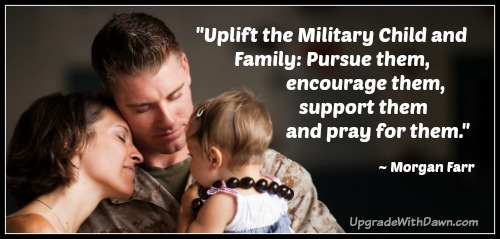How to Be a Donkey
I'm not surprised Susan Stewart wrote this post. After all, she does care for animals—and I don't mean the human kind! But Susan is also a great teacher, and this Palm Sunday UPGRADE encourages readers to think outside the box and "be a donkey" for the Lord's use.
to think outside the box and "be a donkey" for the Lord's use.
“Palm Sunday is coming,” Susan says. “A day when Christians around the world commemorate Jesus’s triumphal entry in to Jerusalem. The king entering his earthly kingdom.”
I (Dawn) love Palm Sunday. It's a reminder that another special Sunday is coming! But it also reminds me how fickle a crowd can be when it comes to Jesus.
Susan continues . . .
Oh, the reception He received! The people were ready to be freed from the tyranny of the Roman oppressors.
Many were expecting him to arrive on a horse as the military ruler to overthrow Caesar’s army. Instead they saw a man coming on a donkey … the lowly donkey.
Why?
Jesus was coming as a ruler, but not a ruler coming to battle. Horses were a symbol of war. Kings rode horses into battle. Jesus was riding as a ruler coming in peace. Kings rode donkeys in time of peace.
Let’s look a little deeper at this small, young beast.
Eric Davis, a veterinarian from University of California expressed what many of us think, “Donkeys are the least of the least.” Thought of as stupid, stubborn beasts of burden, these animals don’t seem worthy of the task of carrying a king, much less the king of the universe. Certainly not what the Israelites in Jerusalem expected.
The Gospels tell us Jesus sent his disciples into the village of Bethpage to find the animal he was to ride. He knew where this donkey and her colt would be tied up. Jesus was even prepared for the owner to question the disciples about taking them.
When they started to untie the animals, the disciples were questioned. Jesus prepared his friends, “If anyone says to you, ‘Why are you doing this?’ say, ‘The Lord has need of it and will send it back here immediately’” (Mark 11:3). They followed Jesus’s instructions, and the owner let them go (Mark 11:6).
Like me, you may not be surprised the animals were tied up. Here they were waiting for Jesus. After all, although described as the least of the least, the small equines were valuable for work. Their owners didn’t want them to wander off, especially a mother and her colt.
The restraint shows ownership. They needed to be untied to serve him. As instructed, the disciples untied them to take the animals to Jesus.
The poor donkey has a reputation of being stubborn. Often, they will not go where people think they need to go. This is not stubbornness, this is caution. A donkey may refuse to even cross a shadow if it is unfamiliar with the path and thinks there may be danger.
There is no indication this pair resisted. They willingly went. After being untied, they followed the men back to Jesus. Mother donkey didn’t have a sense of danger.
Like most animals in the equine family, donkeys need to be trained for the service they render. Mark indicates Jesus rode the colt. Likely untrained, it didn’t balk at the task it was to perform.
Donkeys can also be loving and trusting of humans they encounter. This colt trusted Jesus and allowed the man on his back.
As Jesus rode into Jerusalem on the donkey, he related to the common people. He didn’t set himself above them with a grand entrance. He rode not just a donkey, but a small young donkey. The king was on a humble creature.
On Palm Sunday we may enter our places of worship to repeat what the people did. We rejoice with songs of hosanna and shouts of praise.
Should we maybe enter in, emulating the donkey?
1. Do we need to be untied?
Each of us desires to serve God. Far too often we are tied up to work, leisure, friends, and so much more the world tells us is important. We also may need to be untied from burdens, guilt, cares, addictions, even devices.
When we allow the Holy Spirit to untie us, we are free to serve.
2. Do we go in peace?
Have you ever argued with God? I have. Surely, Lord, you don’t understand.
When God speaks, I should be listening. Then follow peacefully without question.
3. Do we trust?
The colt would naturally follow the mom donkey. But mom would have been more cautious, even defensive for her child.
She followed. She trusted. She didn’t show any signs of stubbornness.
The colt trusted Jesus. This colt had no training, had never been ridden before. That didn’t keep it from doing the assigned task.
4. Are we humble in our service?
Jesus rode humbly on the donkey. The donkey, the least of the least, was not showy, didn’t stand out from the crowd. This little guy just went about the assigned task.
Ouch. We don’t mean to. We don’t consciously seek attention or accolades. But, let’s be honest, we do like it when we are noticed serving.
While we are rejoicing at the coming of our king ...
Let’s pray:
- to be “untied” yet free,
- trusting,
- peaceful
- and humble servants as a donkey.
Regarding the mentioned four ways to be like a donkey, which still needs some work in your own life?
 Susan K. Stewart—when she’s not tending chickens and donkeys—teaches, writes, and edits non-fiction. Susan’s passion is to inspire readers with practical,
Susan K. Stewart—when she’s not tending chickens and donkeys—teaches, writes, and edits non-fiction. Susan’s passion is to inspire readers with practical,  real-world solutions. Her books include Science in the Kitchen and Preschool: At What Cost? plus the award-winning Formatting e-Books for Writers. You can learn more at her website www.practicalinspirations.com.
real-world solutions. Her books include Science in the Kitchen and Preschool: At What Cost? plus the award-winning Formatting e-Books for Writers. You can learn more at her website www.practicalinspirations.com.
Graphic of donkey adapted, courtesy of Malcolumbus at Pixabay.
 1 Comment → Posted on
1 Comment → Posted on  Thursday, April 11, 2019 at 6:41AM
Thursday, April 11, 2019 at 6:41AM 














